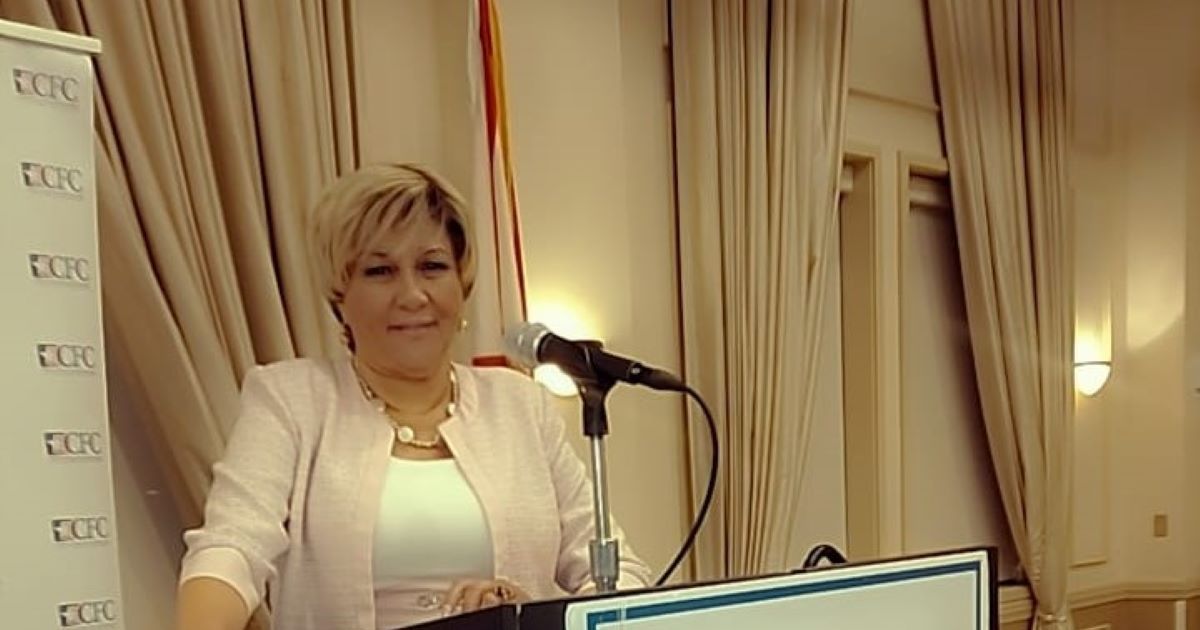Ruhr area.
These are Christmas gifts that last a lifetime: WAZ readers and Kindernothilfe have been helping children all over the world for many years.
It all started with Russia. But in all that time it has never been about politics, not in this special collaboration. It was about the children: for 17 years, the WAZ, together with Kindernothilfe, has visited the youngest children around the world who are having a hard time with their lives. In Africa, Asia, Latin America, but also in Europe. Reporters have always told their stories during Advent: of poverty, violence, abuse. But also of care, protection, hope. You, dear readers, made a donation and changed the world a bit.
Three and a half million euros have been collected from these Christmas donation campaigns since 2006. Kindernothilfe, which is based in Duisburg – and thus in the Ruhr area, like the WAZ – used the money to build shelters, kindergartens and dormitories for girls. She supported self-help groups, strengthened families, sent children to school: refugee children, street children, raped girls, beaten boys. There must have been thousands. We meet three of them again here.
FADI, Lebanon 2014 and 2015
Kfar Nabrak, Lebanon. It wasn’t easy to endure, this life in Lebanon. The sad father without a job, the little sister dead, no money, no hope, and the “house” just a dirty, smelly basement. But life before that was even harder to bear: there was the war at home in Syria, the bomb that fell on the car with the little sister in it. The human body parts that someone had hung on the school fence. Fadi was eleven when he talked about it in a Kindernothilfe protection center in Lebanon, when he showed us the basement hole and his pictures: drawings of his soul. Fadi painted to calm himself, to avoid screaming and hitting others; he was considered an aggressive child, he wanted to protect the siblings he had left.
The family was one of the many who had to flee Syria, but actually had no money for it either. To those who took their children by the hand and just made it across the nearby border. In the next poor and only partially peaceful country, which soon went to its knees under millions of refugees, almost half as many people as previously lived in Lebanon. Fadi, the little boy with the unruly quiff, was seven when he arrived in the Chouf mountains, he had not yet attended school and the Lebanese one had no place for him.
His pride and joy: the school uniform
In 2015, during the second WAZ visit to the site, Kindernothilfe had made it: Fadi, now twelve, was a schoolchild, and a boy couldn’t be happier. On the only hook in the family’s new “apartment” that was a rusty nail on the wall of an unfinished garage hung a blue overall: his school uniform. How proud was Fadi!
“The quiet and reserved child,” writes project supervisor Tarek Dib today, “became a courageous, confident boy.” There was no more talk of beatings. Fadi found friends, learned to read and write and above all: to believe in himself. He himself says that school was “the best time” in his life, “because there I was able to show what I was made of”. Dib says he “showed incredible strength” and worked hard to hone his skills. Kindernothilfe and the many donations from WAZ readers helped him. Two Christmas visits raised EUR 446,000.
“I was hoping to have a better life”
And now: It’s still not easy. Fadi is now 19 years old, school is over – but the war still hasn’t. The young man, says Tarek Dib, is “put to the test”: Like almost all Syrian refugees in the neighboring country, his family lives in abject poverty, his brother is looking for a job, and Fadi is also struggling. He would love to study, get a degree, his biggest goal is to “help my parents”. He is currently looking for work again and also takes care of his grandparents. “I had hoped to have a better life,” he continues to hope, and thanks again from the bottom of his heart for the support. And someone like Fadi doesn’t give up, ever. “His dedication and determination,” says Tarek Dib, “gives hope that he will master the challenges that lie in his path.”
KAIDO, Ethiopia 2017
Dire Dawa, Ethiopia. “Life is good,” Kaido said – that was when she was almost a (street) child, and again when Corona was also in Africa. And that’s not the only reason why the sentence sounds so unbelievable from this mouth that always smiles. But that’s Kaido: she went to school for the first time at the age of ten. Who until then had slept like a wild dog on the street: a life in the dirt. Kaido, who we met in 2017 in Dire Dawa, Ethiopia, when she was 13. The story of this girl is so sad – but Kaido tells us with a smile of happiness.
On the first visit, it was lucky to be able to learn. Lucky to have a home, even if it was just a windowless shack, with no furniture, no water, but a roof. Lucky that mum earned a few birr at the market and was finally able to give her children more than other people’s waste. Kindernothilfe and its partners had fished this child out of the gutter, dirty, with an inflamed scalp and without hope.
Manager or fashion designer?
And now she’s 18. A young woman who, despite long lockdowns, graduated from school and still doesn’t want to stop studying: Kaido wants to study soon, and if you want to study, you have to be good, very good, only then it costs the university in Ethiopia no money. That’s why she’s trying even harder now, she’s always been second best, she wants to be best now. And then? become a manager. Or fashion designer. Kaido has always loved to paint, beautiful women like she is now, in beautiful clothes that she doesn’t own herself. She has brought the pictures back with her and is pressing the pages tightly to her chest.
Kindernothilfe is still at their side, has found a perspective for so many street children and those who were sold to work, also with the donations from WAZ readers. Kaido still makes the future a little nervous. But this “new life” is clear to her: it will also be good.
JESSICA, Guatemala 2018
El Tejar, Guatemala. They needed this “house where children find peace” in El Tejar: because there is so much violence in Guatemala, especially against the youngest, so much drug crime; even the youngest are starting to do it and even more so since the Corona crisis. These stories could be told with Jessica, the six-year-old, as an example: the brother was addicted, the father drank, the mother in her desperation sometimes reacted too harshly. Jessica was that child for whom they still had hope at the Kindernothilfe partner. Today they have to laugh when they see the old photos: how the dust whirled up when playing football, so that you couldn’t see whether Jessica had scored the goal!
Children go to court: “We just want to play!”
Today there is a decent soccer field where there was only barren undergrowth in 2018. And this very house that Jessica comes to every day of the week. But only after school! She’s eleven now, proudly wears her school uniform, likes math best and could just play in the shelter they built with the donations from the WAZ campaign. But that’s not enough for the girls: They recently wrote exactly that on a poster, “We just want to play”, and took it to the courthouse in Antigua, where a trial was taking place against a man who had raped a girl.
Jessica is fighting something like that now, at eleven! And for children having access to the Internet and not just disappearing – it is said that many are being sold. Political work is important in the new shelter, even if the boss, Saul Interiano, says: “Above all, we want the children to play happily again.” and says she is “better than the others who are locked up, for example”.
Changing lives in the long term
A lot has changed for Jessica, and it didn’t start well. The father left, the family’s sparse corrugated iron hut burned down, but Kindernothilfe was there. Today mom has a job, all three brothers work too, and Jessica wants to become a police officer or a soldier and “make sure that the children aren’t abused”. Or baker, that works too.
She gets help with everything, an education, support with her CV; Interiano says they’re doing everything “to make things better for girls like Jessica.” And the boy too. “To all generations to come!” Jessica, he says, will eventually be “a confident, strong, free person” who will break the “vicious circle of alcoholism and violence. The shelter is “a beautiful place” and the children of Guatemala are so grateful for it. “Sometimes you buy something short-term, but this is where lives are changed in the long-term.”
More articles from this category can be found here: Rhine and Ruhr


